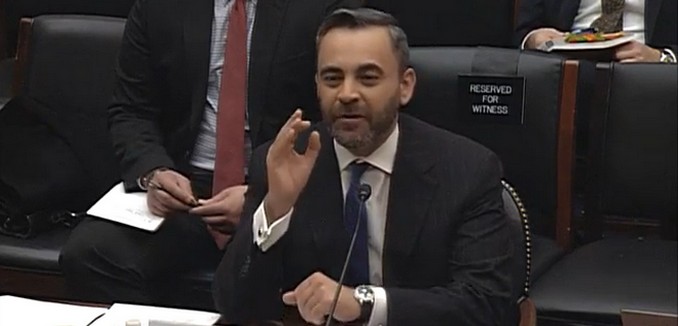Iran’s Islamic Revolutionary Guard Corps (IRGC) is perpetuating the presence of ISIS in Syria and Iraq while undermining American national interests in the Middle East, Ali Alfoneh, a senior fellow and expert on Iran at the Foundation for Defense of Democracies, said Wednesday at a House Foreign Affairs Committee hearing.
In his prepared testimony (.pdf), Alfoneh pointed to recent comments by Anne Patterson, the State Department’s assistant secretary for Near Eastern affairs, which illustrate that Iran’s goals in Syria are diametrically opposed to U.S. objectives.
According to Patterson, the U.S. is seeking to defeat ISIS in both Syria and Iraq, facilitate a political transition to a ruler other than Syrian dictator Bashar al-Assad, mitigate the suffering of Syrian civilians, and stabilize allies in the region while assisting European partners as they deal with an influx of refugees.
In contrast, Alfoneh wrote, statements by the IRGC’s leaders reveal, “that the Islamic Republic is pursuing the exact opposite goals. For the Guards, the primary objectives are to: (1) keep Assad in power by deploying IRGC forces and non-Iranian Shiite militias in Syria; (2) highlight ISIL as a worse alternative to Assad while making no serious military effort against the Islamic State; and (3) concentrate Iran’s military resources against Syrian rebel forces threatening the Assad regime, including the secular opposition, which might offer an acceptable alternative to Assad.”
.@Alfoneh says at hearing: #IRGC do not want to fight ISIS. They are fine with it. Not existential threat to them 1/
— FDD's Iran Project (@FDD_Iran) December 2, 2015
.@Alfoneh says at hearing: ISIS is now the only alternative to Bashar Assad. #IRGC is fine with letting ISIS stay. #Syria
— FDD's Iran Project (@FDD_Iran) December 2, 2015
In June, the U.S. accused Syria of aiding ISIS by bombing moderate rebel groups, a charge that has been leveled at Assad for over a year. In 2014, reports surfaced that Iran was selling weapons to ISIS, only two years after the U.S. Treasury Department exposed Iran’s ties with al-Qaeda in Iraq, the terror group’s predecessor.
In April, noting that Iran didn’t extend its forces or those of its allies to fight ISIS in Iraq, former U.S. military intelligence officer Michael Pregent concluded that “Iran needs the threat of ISIS and Sunni jihadist groups to stay in Syria and Iraq in order to become further entrenched in Damascus and Baghdad.”




